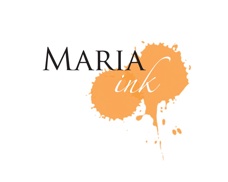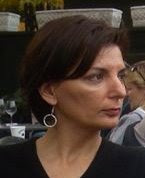In a flashback to Fahrenheit 451 , it’s Banned Books Week. Although it’s hard to believe that we are engaging in these practices in 2010, it is happening.
, it’s Banned Books Week. Although it’s hard to believe that we are engaging in these practices in 2010, it is happening.
My intent with this post is not to say that we shouldn’t be mindful of what young people read or to what they are exposed. I believe parents hold a great deal of responsibility in this area.
But back to the books…
From the New York Times’ Learning Network:
Held annually during the last week of September, Banned Books Week highlights the benefits of intellectual freedom and draws attention to the harms of censorship by spotlighting actual or attempted banning of books across the United States, including books commonly taught in secondary schools.
The Adventures of Huckleberry Finn , The Catcher in the Rye
, The Catcher in the Rye , and To Kill a Mockingbird
, and To Kill a Mockingbird are on the list of censored books. What?!
are on the list of censored books. What?!
The Lord of the Flies : I read this in high school and it had a profound effect on me, so much so that to this day the mere mention of the title displays vivid images in my mind and yanks at my sense of comfort. According to one challenge, the book is “demoralizing inasmuch as it implies that man is little more than an animal.” It was dark but real, and I'm glad to have read it then.
: I read this in high school and it had a profound effect on me, so much so that to this day the mere mention of the title displays vivid images in my mind and yanks at my sense of comfort. According to one challenge, the book is “demoralizing inasmuch as it implies that man is little more than an animal.” It was dark but real, and I'm glad to have read it then.
Of Mice and Men : Banned because "Steinbeck is known to have had an anti business attitude." Relevance?
: Banned because "Steinbeck is known to have had an anti business attitude." Relevance?
Animal Farm : I found this painful to read while in school and went back to it years later knowing that I needed to take the time with this book. Censored! The reason cited was that "Orwell was a communist.”
: I found this painful to read while in school and went back to it years later knowing that I needed to take the time with this book. Censored! The reason cited was that "Orwell was a communist.”
The Lord of the Rings : “Regarded as satanic.” What’s to be said now that it has become a blockbuster sensation and a story devoured by people of all ages around the globe? It’s classic good versus evil. Tolkien took so much time to create the middle earth, its language, and all that populated it. His works should be celebrated and shared not banned.
: “Regarded as satanic.” What’s to be said now that it has become a blockbuster sensation and a story devoured by people of all ages around the globe? It’s classic good versus evil. Tolkien took so much time to create the middle earth, its language, and all that populated it. His works should be celebrated and shared not banned.
1984 : The challenge: It was “pro-communist and contained explicit sexual matter.” They had sex in 1984? My focus was on Big Brother and still is.
: The challenge: It was “pro-communist and contained explicit sexual matter.” They had sex in 1984? My focus was on Big Brother and still is.
The Catcher in the Rye : Charles McGrath wrote in JD Salinger’s obituary that “Reading 'Catcher' used to be an essential rite of passage, almost as important as getting your learner’s permit.” It was. Why would we want to change that?
: Charles McGrath wrote in JD Salinger’s obituary that “Reading 'Catcher' used to be an essential rite of passage, almost as important as getting your learner’s permit.” It was. Why would we want to change that?
But the bigger question is why do we want to ban books?
Reading opens us up to emotions, ideas, situations, and locations that may or may not be familiar to us. Living someone else’s life as we turn each page brings us new experiences and helps shape who we are. Some times, words on a page articulate thoughts and feelings that rise from within and with which we wrestle for understanding. Other times it's just light and airy and breezy.
Censorship is control, and control is usually sought to further a particular motivation or intention. As I said, parents have a tremendous responsibility to help regulate to what their children are exposed. Instead of banning a list of books and taking them out of circulation for everyone, recognize that maturity levels differ, personal perspectives are unique, and the back-story of young people’s lives isn’t always known by a school board or a teacher or an advocacy group. Parents can have the last word.
There are two sides to this issue: the freedom to choose what to read and the freedom to express oneself in writing books.
What do you think about this?

